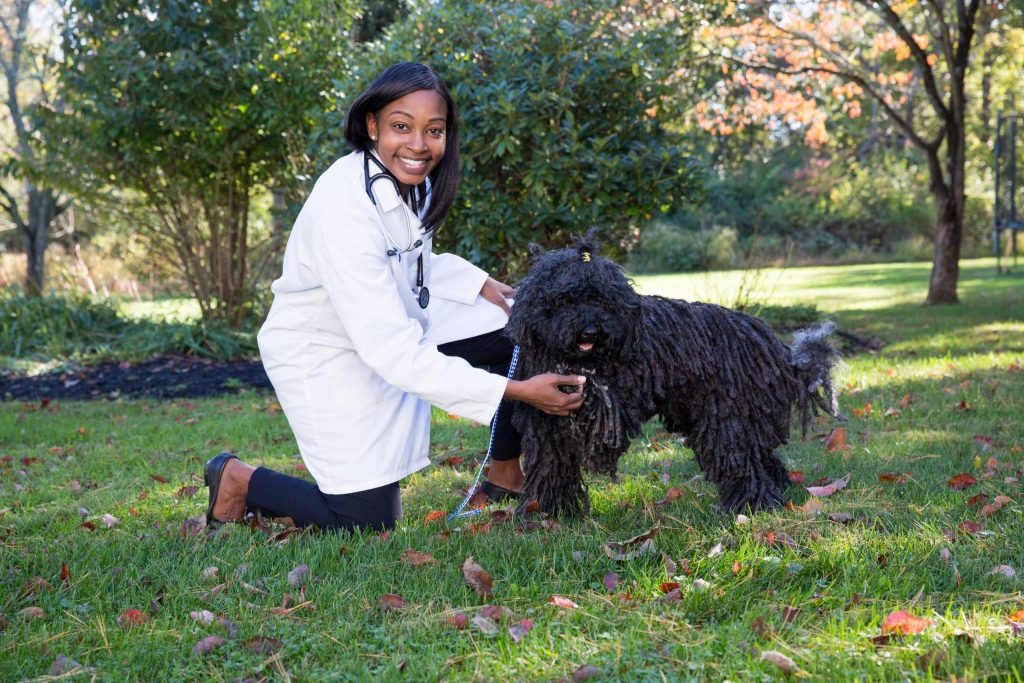Recognizing the Role of a Vet Oncologist in Your Family pet's Cancer cells Treatment
A veterinary oncologist concentrates on identifying and dealing with cancer cells in animals. Their knowledge is essential for establishing customized treatment strategies that attend to the one-of-a-kind needs of each pet dog. Early diagnosis can greatly influence outcomes, making their function also extra essential. Understanding the numerous therapy options and just how these experts collaborate with primary vets is important. What methods do they employ to boost your family pet's top quality of life throughout this tough time?

What Is a Veterinary Oncologist?
A veterinary oncologist is a specific vet that concentrates on dealing with and detecting cancer cells in animals. These specialists have innovative training in both veterinary medicine and oncology, enabling them to recognize the intricacies of cancerous conditions in animals. Their knowledge allows them to perform a selection of diagnostic treatments, consisting of imaging methods and research laboratory examinations, to properly determine various sorts of cancers in pet dogs.
In enhancement to diagnosis, vet oncologists create tailored treatment strategies, which may include surgical treatment, chemotherapy, radiation therapy, or palliative treatment. They function carefully with family pet owners to describe therapy choices and prospective results, ensuring that households make notified decisions regarding their pet dogs' care. Moreover, veterinary oncologists usually work together with various other general specialists and veterinary specialists, creating a detailed strategy to pet health. By focusing on cancer treatment, they play an essential role in enhancing the lifestyle for pet dogs diagnosed with malignancies.
The Importance of Early Diagnosis and Therapy
Early medical diagnosis and treatment of cancer cells in animals greatly improve the opportunities of effective outcomes and enhanced top quality of life. When cancer is identified in its beginning, veterinary oncologists can execute targeted treatments that may slow down disease development and alleviate signs. This positive approach permits for better management of the disease, potentially bring about longer survival times and improved comfort for the family pet.
Furthermore, very early discovery typically indicates that therapy options might be much less invasive and extra effective, reducing the total burden on both the family pet and its owner. Routine vet check-ups and understanding of subtle behavior changes are essential, as they can assist in prompt medical diagnoses. Owners must continue to be cautious and consult their veterinarian at the very first sign of concern. Veterinary Oncology Services. Ultimately, an early diagnosis empowers pet dog proprietors to make enlightened choices about their animal's care, significantly impacting the total journey through cancer cells management
Therapy Alternatives Used by Veterinary Oncologists
When confronted with a cancer cells diagnosis, pet proprietors can check out a range of treatment alternatives given by vet oncologists that are tailored to the certain needs of their animals. These experts typically use a combination of surgical procedure, radiation treatment, radiation treatment, and immunotherapy. Surgical intervention may intend to get rid of lumps or affected cells, while chemotherapy makes use of drugs to eliminate and target cancer cells, frequently administered in cycles.
Radiation treatment concentrates on using high-energy rays to reduce growths and ease pain. Immunotherapy, an extra current innovation, uses the pet dog's body immune system to deal with cancer cells a lot more successfully. Extra helpful treatments, such as pain administration, dietary assistance, and palliative care, are also important components of a detailed therapy strategy. By assessing each situation separately, veterinary oncologists assure that the picked treatment lines up with the animal's overall wellness and cancer type, maximizing the opportunities of a positive result.
The Collaborative Method: Working With Your Main Vet
Cooperation in between vet oncologists and key vets is essential for supplying extensive treatment to pet dogs identified with cancer. This partnership assures a complete strategy to treatment, incorporating the specialized understanding of oncologists with the ongoing treatment offered by key veterinarians. Together, they analyze the pet's health and wellness, develop customized therapy strategies, and check the animal's development throughout the cancer journey.
Main veterinarians frequently act as the initial point of contact, determining possible signs of cancer and referring individuals to oncologists for specialized diagnostics and therapy alternatives. Following the oncologist's referrals, the primary veterinarian plays an essential duty in taking care of the animal's general health, consisting of pain management and supportive treatment.
Reliable communication between these professionals fosters a unified technique, permitting for prompt treatments and changes to treatment as needed. This joint method eventually improves the quality of care and support for animals and their owners during a tough time.


Sustaining Your Pet Dog Via Cancer Cells Care
Sustaining a pet via cancer treatment requires an extensive understanding of the psychological and physical challenges encountered by both the pet and its owner. Caretakers must listen to the pet dog's altering demands, which might include managing pain, adjusting diet regimens, and keeping an eye on side effects from treatments. Offering a comfy, stress-free setting is vital for the pet's health.
Emotional assistance is equally important; proprietors must look for to remain positive and involved while being conscious of their very own sensations of anxiousness and unhappiness. Creating a support network, including veterinarians, family, and good friends, can relieve Veterinary Oncologist some problems.
Additionally, pet dog proprietors must educate themselves about the details type of cancer and therapy choices available, fostering educated discussions with veterinary oncologists. Ultimately, a thoughtful method, incorporated with positive care and assistance, can improve the pet dog's lifestyle during this difficult journey.
Often Asked Questions
Exactly how Do I Pick the Right Veterinary Oncologist for My Animal?
Selecting the best veterinary oncologist includes researching credentials, seeking suggestions, examining experience with details cancers cells, determining communication styles, and visiting clinics to ensure a comfortable setting for both the animal and proprietor throughout therapy.
What Should I Anticipate Throughout the First Visit?
Throughout the initial appointment, the pet proprietor can expect a thorough evaluation, discussion of case history, diagnostic tests, and a therapy plan summary. The veterinarian will address concerns and supply advice for recurring care.
Are There Any Prices Connected With a Vet Oncologist's Services?
Expenses linked with a vet oncologist's services can differ significantly based upon area, treatment intricacy, and called for diagnostics. Veterinary Cancer Specialist. Pet dog owners ought to expect expenditures for appointments, tests, and potential continuous treatment plans customized to their pets' needs

Can My Pet Still Receive Normal Veterinary Care While Seeing an Oncologist?
Pet dogs can receive routine veterinary care while seeing an oncologist. Collaborating treatments guarantees complete health and wellness administration. Routine check-ups enhance specialized cancer cells treatment, enabling for alternative monitoring of the pet dog's overall health and addressing other wellness problems.
What Resources Are Available for Animal Owners Throughout Their Family pet's Cancer cells Journey?
Numerous sources are readily available for animal owners navigating their family pet's cancer cells trip, including support system, online discussion forums, academic sites, and monetary assistance programs, all intended at giving assistance, emotional assistance, and useful details during this difficult time.
A vet oncologist is a customized veterinarian who focuses on detecting and treating cancer in family pets. They function closely with family pet proprietors to explain treatment options and prospective results, ensuring that households make educated choices about their pets' care. When encountered with a cancer diagnosis, family pet proprietors can explore a range of treatment choices given by veterinary oncologists that are tailored to the details demands of their animals. Cooperation in between primary veterinarians and veterinary oncologists is important for giving comprehensive care to pet dogs detected with cancer. Additionally, animal owners need to inform themselves about the particular type of cancer cells and therapy alternatives readily available, cultivating educated conversations with veterinary oncologists.